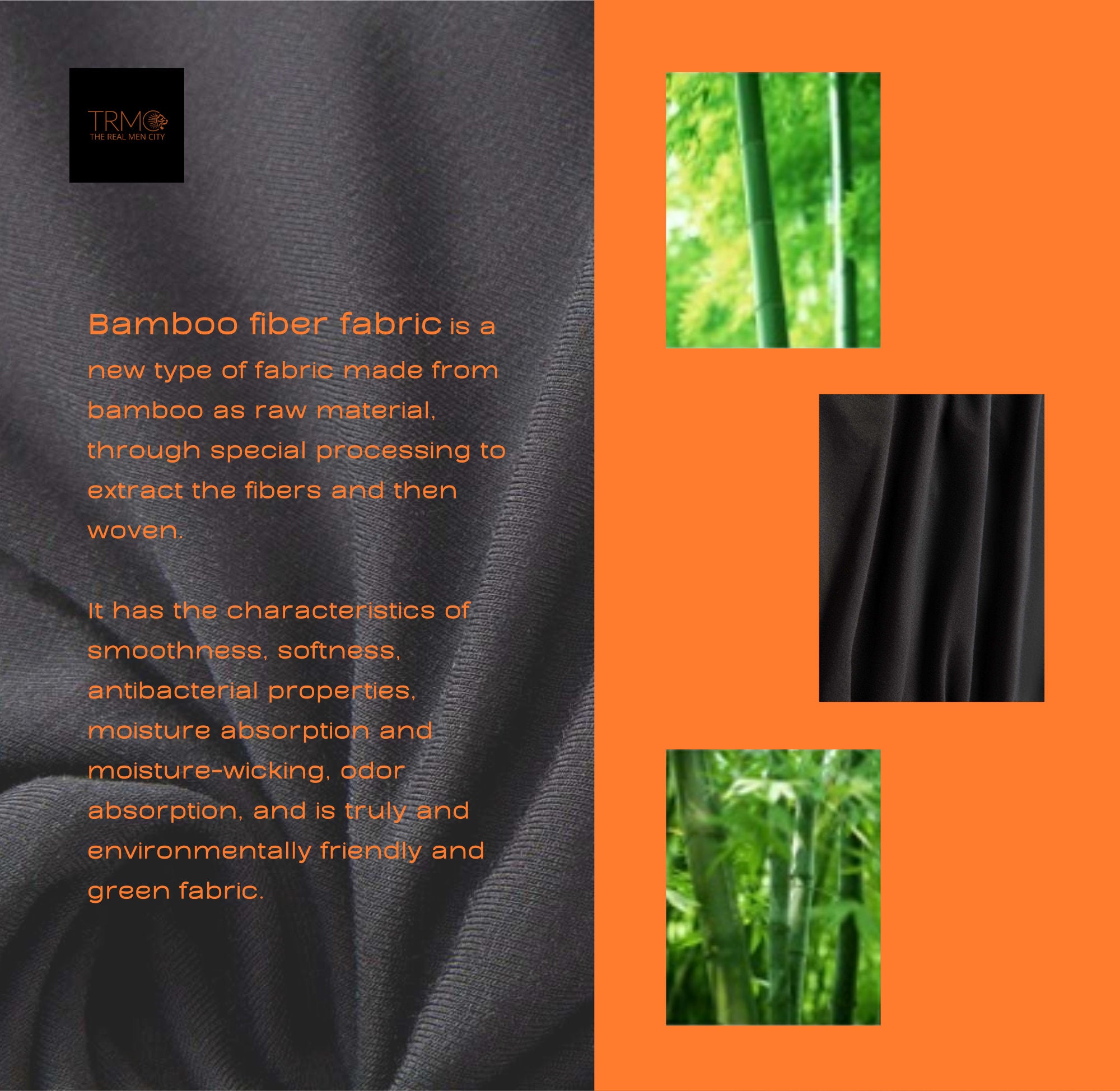EMBRACING SUSTAINABILITY
VISCOSE BAMBOO VS. PURE BAMBOO FIBER
It's essential to distinguish between "viscose bamboo" and pure bamboo fiber. Viscose bamboo often involves a chemical-heavy production process, which may compromise its eco-friendliness. In contrast, our bamboo fiber fabric is created with fewer chemicals, preserving its sustainability, and ensuring it remains gentle on your skin.
Scientific Benefits and Sustainability
The benefits of bamboo fiber extend beyond its comfort and eco-friendliness. Scientifically, bamboo fabric is hypoallergenic, making it suitable for sensitive skin. Its moisture-wicking properties provide comfort in various climates. Choosing bamboo fiber means embracing a fabric that is not only beneficial for you but also for the planet. By selecting bamboo fiber products, you're making a conscious choice to support sustainable practices and enjoy the numerous advantages this remarkable fabric offers. Join us in our commitment to a greener future – one soft, antibacterial, and moisture-absorbent bamboo fiber at a time. Together, we can make a difference in the world of fashion and environmental stewardship.
The Marvel of Bamboo Fiber
In a world where environmental consciousness and sustainable choices are becoming increasingly essential, bamboo fiber fabric stands out as a remarkable innovation. Derived from the bamboo plant, this fabric has gained recognition for its unparalleled properties, environmental benefits, and positive impact on our well-being. Let's delve into the fascinating world of bamboo fiber and explore why it's a sustainable game-changer for the modern consumer.
One of the standout features of bamboo fiber is its natural antibacterial properties. Bamboo fabric can effectively inhibit the growth of bacteria and fungi, making it an ideal choice for clothing that stays fresher for longer. Say goodbye to unpleasant odors, as bamboo's inherent antibacterial quality ensures a cleaner and more hygienic experience.
Bamboo fiber boasts an exceptional ability to absorb moisture. Its unique surface, adorned with irregular deformations and elliptical-shaped micro-pores, creates a highly efficient hollow and capillary effect. This enables the bamboo fabric to rapidly absorb and evaporate moisture, keeping you dry and comfortable even during the warmest days.
Choosing bamboo fiber is an eco-conscious decision. Unlike some conventional fabric production processes that rely heavily on chemicals and water, bamboo fabric is created with minimal environmental impact. Bamboo plants grow quickly and require significantly fewer resources like pesticides and water. This sustainable growth, coupled with the minimal use of chemicals in the production process, makes bamboo fiber a greener choice.
1. Bamboo Harvesting: The process begins with the sustainable harvesting of bamboo plants.
2. Chopping Bamboo: The bamboo is then chopped into small pieces.
3. Steaming: These bamboo slices are steamed to facilitate further decomposition.
4. Crushing and Decomposition: The steamed bamboo undergoes crushing and decomposition.
5. Carding: The bamboo fibers are carded to refine and prepare them for weaving.
6. Finished Product: The result is a remarkably soft and eco-friendly fabric ready to be transformed into various products.





